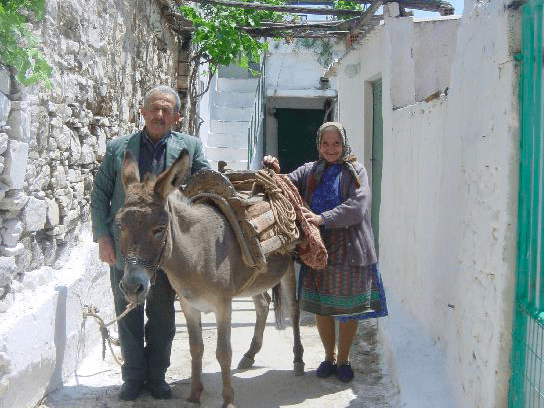
Research conducted with people living in isolated Greek mountain villages shows they live long and healthy lives, due to a unique gene that protects them against heart disease, scientists have discovered.
A rare genetic gene found in people from isolated Greek villages is found to protect them against deadly heart disease and may now provide hope for future treatments, according to British and Greek scientists.
They found a new genetic variant, common among villagers, which appears to protect the heart by lowering levels of "bad" fats and cholesterol.
Despite a diet rich in animal fat, the people of Mylopotamos in northern Crete do not suffer from cardiovascular disease.

Few people move in or out of the villages and the inhabitants are known for living well into old age.
Heart problems, heart attacks and strokes - all types of cardiovascular disease - are rare, and that's despite a diet which includes plenty of Cretan dishes, which include a lot of meat and cheese.
They studied the villagers in an area of northern Crete because they had low cases of heart disease despite eating lots of animal fats.
The study, for the first time made a genetic portrait of the population of of Zoniana and Anogia by sequencing the entire genome of 250 individuals. They found a new genetic variant, common among villagers, which appears to protect the heart by lowering levels of 'bad' fats and cholesterol.
Researchers from the Wellcome Trust Sanger Institute found that the variant is 40 times more common in this small Greek population than in other European populations.
"Genetic studies like this can help us begin to understand why this is," said lead author Professor Eleftheria Zeggini.
The team used the results to give a more detailed view of approximately 3,200 people for whom previous genetic information was known.
They identified the new genetic variant rs145556679* which was not previously known to have cardio-protective qualities.
The team also studied an isolated population of 1,700 people from mountainous villages in the Pomak region of northern Greece.
They discovered four separate genetic variants that affect diastolic blood pressure, fasting glucose levels, white blood cell count and haemoglobin levels.
The genetic variant R19X was far more common in this population than in other European populations - 2 per cent compared to just 0.5 per cent.
This variant decreases triglyceride levels - a blood fat that increases risk of heart disease.
*Findings were published in Nature Communication.



yes, this is amazing, especially in villages on Ikaria people are over 100 years old.